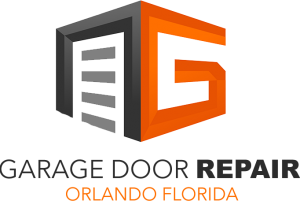Welcome to our comprehensive guide to garage door repair! Whether you’re facing a minor issue or a major repair, we’ve got you covered. In this guide, we’ll take you through the essential elements of garage door repair, offering insights, recommendations, and solutions to tackle any problem you may encounter. Let’s dive deeper into the world of garage door mechanics and the common issues that can arise.
Understanding Garage Door Mechanics
A garage door is a complex system with several components working together to ensure smooth and reliable operation. Understanding how these components function is crucial to identifying and resolving potential problems. The main elements of a garage door system include:
- Springs: These counterbalance the weight of the garage door, making it easy to open and close. There are two types of springs: torsion springs, mounted above the door, and extension springs, located on either side. If you notice a broken spring, it’s essential to address the issue promptly to avoid further damage and ensure your safety.
- Cables: The cables work in tandem with the springs to support the weight of the door and prevent it from crashing down. If a cable snaps, the door can become unstable and unsafe to operate. Addressing this issue promptly is vital to preventing further damage and potential accidents.
- Rollers: Rollers facilitate the smooth movement of the garage door along the tracks. Over time, they can become worn out or damaged, resulting in noisy and inefficient operations. Regularly inspecting the rollers for signs of wear and tear can help maintain the smoothness of operation.
- Tracks: The tracks guide the door as it moves up and down. Misaligned tracks can cause jerky movements, loud noises, or even a complete failure to open or close the door. Inspect the tracks regularly and ensure they are properly aligned.
- Garage Door Opener: The garage door opener is a crucial component that automates the door’s operation. It includes a motor, a drive system, and various safety features. If your opener is malfunctioning, it can be frustrating and inconvenient. Issues may include a faulty motor, remote control problems, or sensor misalignment.
Common Garage Door Problems
- Noisy Operation: If your garage door is making excessive noise during operation, it could be due to worn-out rollers, misaligned tracks, or loose hardware. Regular maintenance and timely replacements can alleviate this issue.
- Door Sticks or Jerks: If the door sticks or jerks while opening or closing, there may be a problem with the tracks or rollers. Inspect and clean the tracks regularly to ensure smooth movement.
- Door Won’t Close Completely: If your garage door doesn’t close all the way, it could be due to misaligned sensors or an issue with the limit settings on the opener. Adjusting the sensors and resetting the limit settings may solve the problem.
- Remote Control Malfunctions: If the remote control fails to operate the door consistently, check the batteries and ensure that there are no obstructions between the remote and the opener’s receiver.
- Sagging Garage Door: A sagging garage door may be caused by worn-out springs or cables. This issue can affect the door’s balance and potentially lead to further damage.
When to Call a Professional – While DIY repairs can be cost-effective and rewarding, there are instances where professional intervention is necessary. Here are a few scenarios where it’s best to call a garage door repair specialist:
- Complex Repairs: If you encounter a complex issue, such as a complete system failure or extensive damage, it’s advisable to seek professional help. Garage door professionals have the expertise and tools to handle such situations effectively.
- Safety Concerns: If you’re unsure about the safety risks associated with a repair, it’s always better to err on the side of caution and consult a professional. Your safety and the security of your property should be paramount.
- Lack of Experience: If you don’t have prior experience with garage door repairs, it’s generally best to let a professional handle the job. They can ensure that the repair is done correctly and prevent further damage.
Conclusion
We hope this complete guide to garage door repair has provided you with valuable insights and information to address any issues you may encounter. Remember to prioritize safety, and when in doubt, don’t hesitate to reach out to a professional. By taking proper care of your garage door, you can ensure its longevity, performance, and the security of your home. We’re always here to help you with any garage door-related concerns. Whether it’s a simple maintenance task or a complex repair, our team of experts is ready to assist you. So, go ahead and enjoy the convenience and security of a well-functioning garage door!
